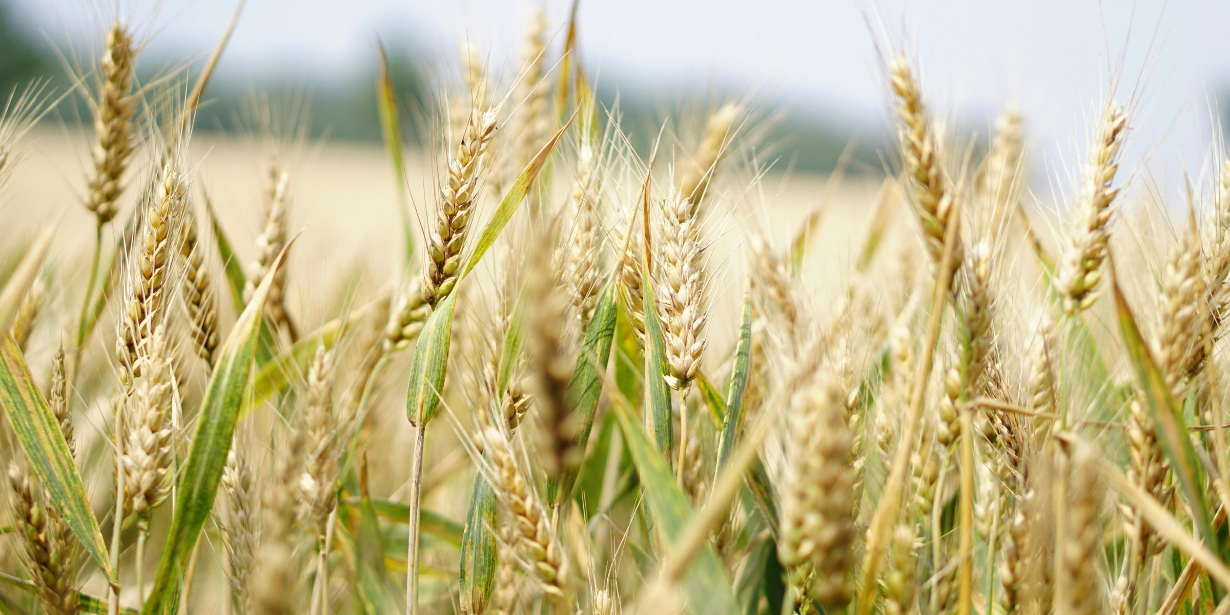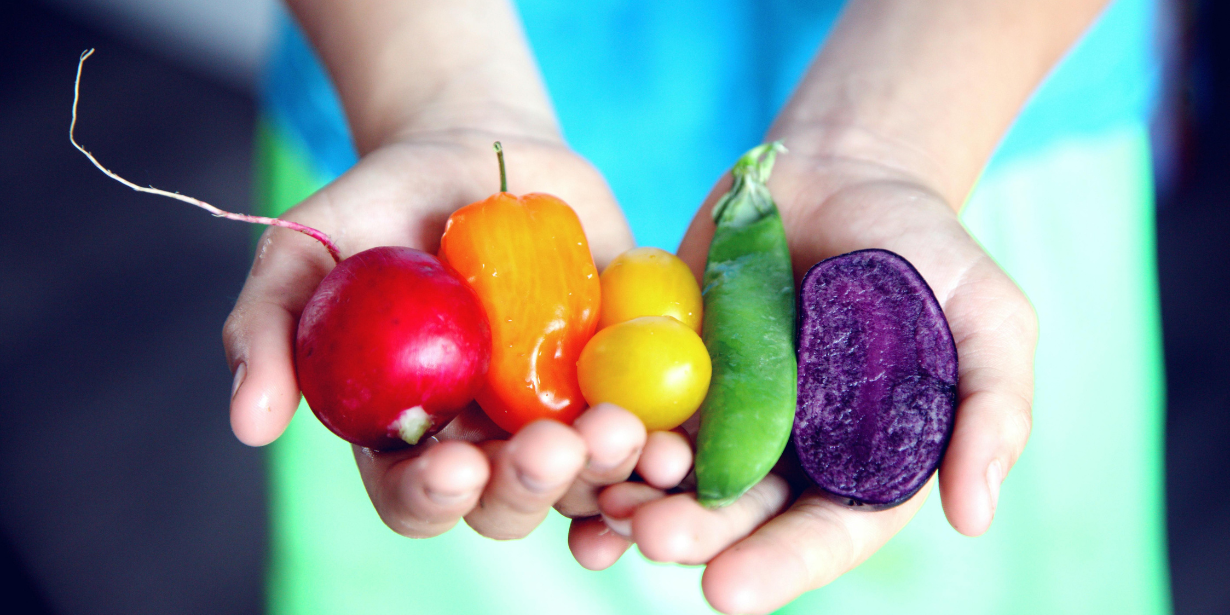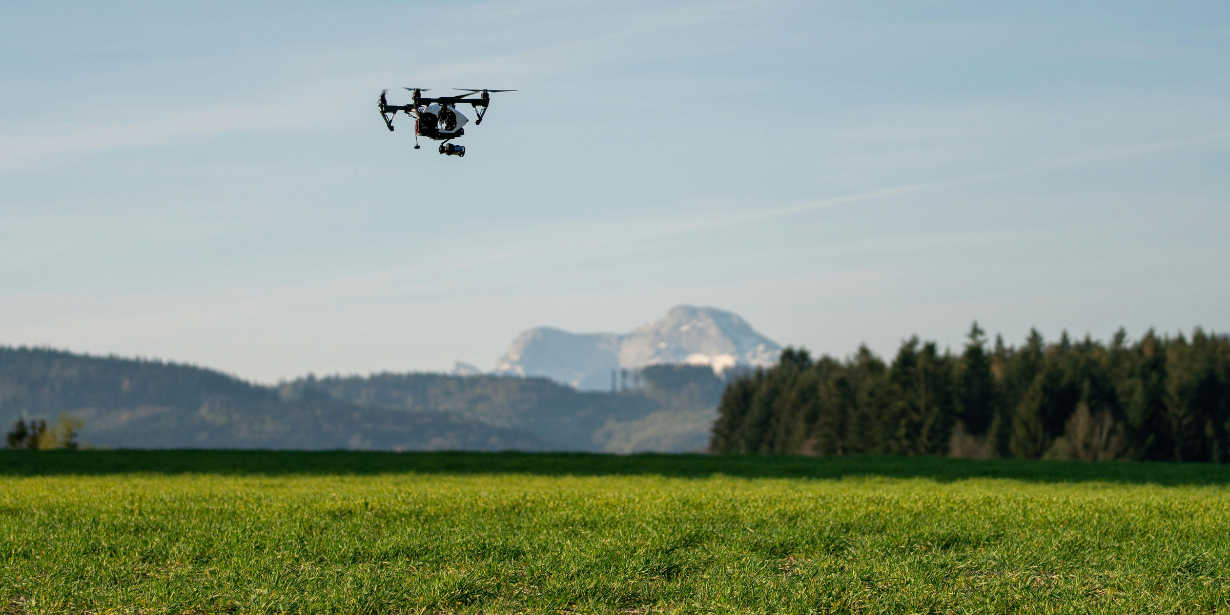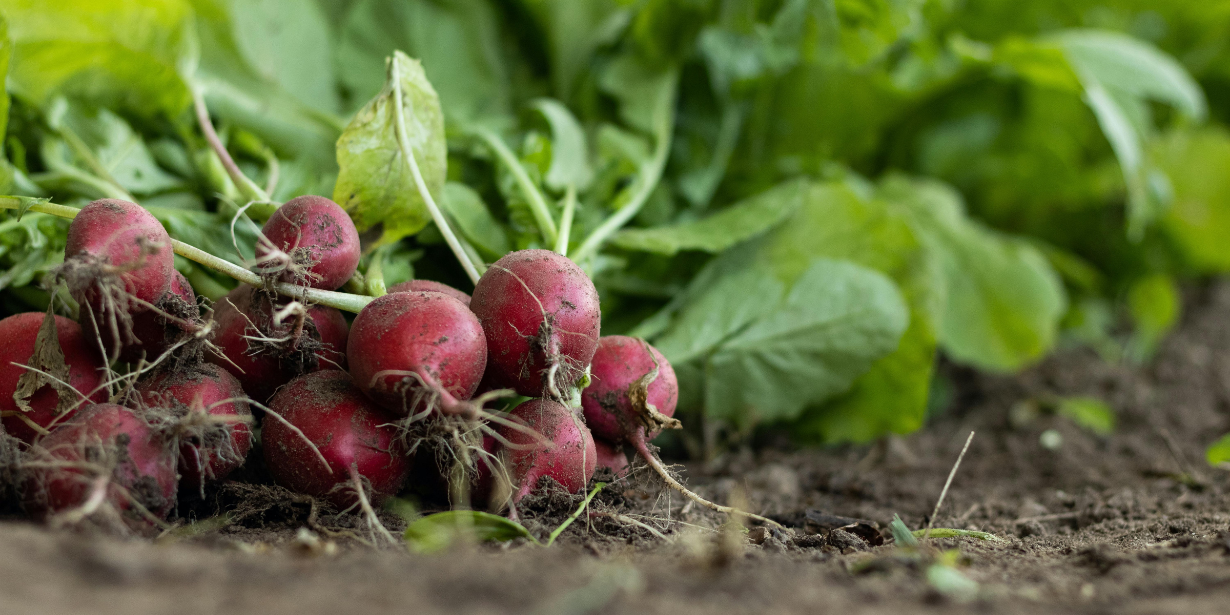Your Guide To Sustainable Agriculture

This article may contain affiliate links that promote products or services related to the topic We will earn a commission when you make a purchase through these affiliate links. However, we bare no responsibility if the products or services we recommend doesn't satisfy your needs.
Highlights
|
Have you recently visited your local farmers’ market and wondered why their produce is so fresh, healthy and cheap? The answer is simple, these farmers grow their fruits and vegetables using a method, where they don’t use any chemicals such as fertilizers or pesticides. It’s called sustainable agriculture. When they don’t invest in these harsh chemicals on their harvest, they significantly grow better produce at less expenses, which means they get to sell their produce for less. While conventional agriculture has undoubtedly played a crucial role in feeding the world's ever-growing population, it's come at a cost. Soil degradation, water pollution, and the decline of biodiversity are just a few of the challenges we face due to unsustainable farming practices.
So, what exactly is sustainable agriculture?
Sustainable agriculture is a dynamic approach to food production that prioritizes environmental health, social responsibility, and economic viability. It's about fostering a harmonious relationship with the land, ensuring we can continue to grow nutritious food for generations to come. Think of it as a win-win-win scenario for our planet, our communities, and our plates.
According to the Food and Agriculture Organization of the United Nations, by 2050, we'll need to increase global food production by 70% to feed a projected population of 9.7 billion. Can we achieve this monumental task without further straining our ecosystems? Sustainable agriculture offers a compelling answer: Yes, we can. By implementing innovative practices and nurturing a deeper understanding of our food systems, we can cultivate a future where abundance thrives alongside environmental responsibility.
Intrigued? Delve deeper with me as we unveil the secrets of sustainable agriculture, exploring its core principles, the multitude of benefits it offers, and the practical steps we can all take to be a part of the solution. Let's begin!
| TABLE OF CONTENTS |
What is Sustainable Agriculture?
You just got a basic idea of what sustainable agriculture is. Now, let’s look into its detailed explanation. Imagine a world where our food system is not just productive, but regenerative. A system that nourishes our bodies while simultaneously nurturing the land that sustains us. This is the essence of sustainable agriculture – a holistic approach to farming that prioritizes the long-term health of our planet and its inhabitants.
But what exactly does sustainable agriculture entail? It's a multifaceted philosophy, encompassing a wide range of practices that depart from traditional, often environmentally-damaging methods. Here's a breakdown of its core principles:
- Minimizing Environmental Impact: Sustainable agriculture strives to reduce its footprint on the environment. This includes practices like water conservation (drip irrigation, rainwater harvesting), minimizing soil erosion (cover cropping, no-till farming), and promoting biodiversity (planting hedgerows for beneficial insects, creating wildlife corridors).
- Enhancing Soil Health: Healthy soil is the base of a sustainable food system. Sustainable practices like crop rotation, reducing tillage, and incorporating compost all contribute to building rich, fertile soil. Healthy soil not only leads to increased crop yields but also acts as a natural carbon sink, helping to mitigate climate change.
- Promoting Social Responsibility: Sustainable agriculture recognizes the importance of fair treatment for farmers and farmworkers. It advocates for ethical labor practices, ensuring safe working conditions and fair compensation. Additionally, it promotes local food systems, connecting farmers directly with consumers, fostering a sense of community and ensuring a more equitable distribution of profits.
- Economic Viability: Sustainable agriculture isn't just good for the environment and society; it can also be economically beneficial for farmers. By reducing reliance on synthetic fertilizers and pesticides, sustainable practices can lower production costs. Additionally, the growing consumer demand for sustainable produce often translates to higher market prices for farmers who adopt these methods.
A 2020 study published in the journal Ecological Economics found that organic farms, a form of sustainable agriculture, tend to be more profitable in the long run compared to conventional farms, particularly when considering the environmental costs associated with conventional practices.
| Did you know? According to the World Resources Institute, agriculture accounts for roughly 70% of global freshwater withdrawals demonstrated that drip irrigation techniques can conserve up to 50% of water compared to traditional flood irrigation methods. |
Remember, sustainable agriculture is not just a rigid set of rules; it's a dynamic approach that adapts to local conditions and evolves with new technologies. It's a methodology that acknowledges the intertwining of our food system and embraces innovation to create a future where agriculture and environmental well-being can thrive in harmony.

Benefits of Sustainable Agriculture
We just understood what sustainable agriculture is. But why do we need it? What is its importance? Sustainable agriculture offers a powerful path towards a vision, where it not only strives to keep us healthy but also our planet. By employing a range of innovative practices, it creates a cascading effect of positive impacts, enriching our environment, empowering communities, and even enhancing the quality of our food. To understand the importance of sustainable agriculture, we need to learn about the benefits it offers us. Let's dig deeper into the compelling benefits of sustainable agriculture, exploring how it can transform our food system for the better.
Environmentally Sound: At its core, sustainable agriculture is an environmental champion. By prioritizing practices that minimize our footprint on the Earth, it offers a glimpse of a future where agriculture and environmental well-being can coexist.
- Conservation: Water scarcity is a growing concern, and sustainable agriculture stands as a formidable defense. Practices like drip irrigation and rainwater harvesting can significantly reduce water usage. According to a study published in the journal Agricultural Water Management, drip irrigation can conserve up to 50% of water compared to traditional flood irrigation methods. This translates to a dramatic reduction in our agricultural water footprint.
- Soil: Healthy soil is the lifeblood of any thriving food system. Sustainable practices like cover cropping and composting nurture the soil, boosting its fertility and organic matter content. Healthy soil not only leads to increased crop yields but also acts as a natural carbon sink, playing a crucial role in mitigating climate change. A recent study by the Rodale Institute found that regenerative agriculture practices can sequester significant amounts of carbon dioxide from the atmosphere, offering a powerful tool in the fight against climate change.
- Biodiversity: Sustainable agriculture stimulates a vibrant shade of life. By creating habitats for beneficial insects and pollinators, it promotes biodiversity, a vital component of a healthy ecosystem. This, in turn, strengthens natural pest control mechanisms, reducing reliance on harmful pesticides and promoting a more balanced and resilient agricultural system. Read our article to know what biodiversity is. Here is another article for you to understand its importance.
Socially Sustainable: Sustainable agriculture extends its positive impact beyond the environment, feeding into a more equitable and just food system.
- Empowering Farmers: Sustainable practices often lead to lower production costs due to reduced reliance on expensive synthetic inputs. This empowers farmers, particularly small-scale producers, to achieve greater economic independence and stability.
- Fairness for Farmworkers: Sustainable agriculture often advocates for fair labor practices, ensuring safe working conditions and fair compensation for farmworkers. This creates a more ethical and humane food system that prioritizes the well-being of those who nourish our communities.
- Strengthening Communities: The local food movement, a foundation of sustainable agriculture, builds a sense of connection between farmers and consumers. This not only benefits local economies but also builds stronger, more resilient communities. Imagine visiting a local farmer's market, chatting with the people who grow your food, and understanding the journey from seed to table. This creates a deeper appreciation for the food we eat and the hard work of those who produce it.
A Plateful of Goodness: The benefits of sustainable agriculture extend right to our plates. Studies have shown that food produced using sustainable methods may contain higher levels of certain nutrients and antioxidants. While more research is needed in this area, the potential for improved nutritional value is a compelling reason to explore the bounty of sustainable agriculture.
The Future is Sustainable: Sustainable agriculture isn't just a set of practices; it's an ideology, a way of thinking about food production that prioritizes the long-term health of our planet and its inhabitants. It's a future where environmental responsibility, social justice, and economic viability go hand-in-hand. By adopting these principles, we can cultivate a food system that nourishes us all.
Key Practices of Sustainable Agriculture
Sustainable agriculture is a toolbox overflowing with innovative practices designed to cultivate a healthier planet and a more resilient food system. These practices, when implemented in a holistic manner, can address the environmental challenges posed by conventional agriculture while fostering economic viability and social responsibility. Let's explore some of the key practices that underpin sustainable agriculture, exploring their potential to transform our agricultural landscape.
Organic Farming
Organic farming is a well-established practice within the sustainable agriculture framework. It emphasizes the use of natural methods to promote soil health and fertility. This includes:
- Composting: Think of compost as the ultimate recycling program for your kitchen scraps and yard waste. By decomposing organic matter, composting creates a nutrient-rich amendment that feeds the soil and promotes healthy microbial activity.
- Crop Rotation: Crop rotation works in a way, where different crops take turns on the same plot of land. This helps to prevent nutrient depletion, suppress weeds and diseases, and improve overall soil health. A study published in the journal Field Crops Research demonstrated that crop rotation can lead to significant yield increases compared to monoculture practices.
- Natural Pest Control: Organic farmers promote a natural balance in their fields, encouraging beneficial insects and birds that prey on harmful pests. This reduces reliance on synthetic pesticides, protecting human health and the environment.
Beyond Organic: Exploring Innovative Practices
While organic farming is a powerful tool, sustainable agriculture offers a wider array of practices to explore:
- Regenerative Agriculture: This comprehensive approach goes beyond simply maintaining soil health; it actively seeks to improve it. Regenerative practices like cover cropping (planting crops specifically to improve soil health) and no-till farming (minimizing soil disturbance) can dramatically increase soil organic matter content, leading to improved water retention, carbon sequestration, and ultimately, higher crop yields.
- Precision Agriculture: Precision agriculture utilizes technology like GPS, sensors, and advanced data analysis to apply water, fertilizer, and pesticides only where and when they're needed. This targeted approach minimizes waste and environmental impact while maximizing productivity.
- Water Conservation Techniques: In a world facing increasing water scarcity, sustainable agriculture champions water-saving practices. Drip irrigation, for example, delivers water directly to the plant root zone, minimizing evaporation and maximizing efficiency. Additionally, rainwater harvesting can capture and store precious rainwater for later use, reducing reliance on freshwater sources.
Maintaining Soil Health
Healthy soil is the basis of a thriving food system. Sustainable agriculture employs a range of practices to nurture and protect this precious resource. Composting kitchen scraps and yard waste creates a nutrient-rich amendment that can be added back to the soil, promoting fertility and microbial activity. Reducing tillage, the mechanical turning of soil, minimizes soil erosion and helps to retain valuable organic matter. These practices, when implemented together, create a virtuous cycle, leading to healthier soil, improved crop yields, and increased resilience to climate change.
Promoting Biodiversity
Sustainable agriculture recognizes the importance of a vibrant blend of life. By creating habitats for beneficial insects, pollinators, and other creatures, it nurtures biodiversity. Hedgerows planted along field borders provide shelter and food for beneficial insects, while leaving some areas of farmland uncultivated allows for the growth of wildflowers, further attracting pollinators. Are you aware of the threats our biodiversity is currently facing? Read our article to know the 11 major threats to biodiversity.
Intertwined Solutions: The beauty of sustainable agriculture lies in the interconnectedness of its practices. For instance, cover cropping not only improves soil health but also provides habitat for beneficial insects, promoting natural pest control. Similarly, no-till farming practices, by minimizing soil disturbance, can help to store more carbon in the soil, mitigating climate change.
The key to successful sustainable agriculture lies in tailoring these practices to your specific climate, soil type, and crops. Consider seeking guidance from local agricultural extension services or experienced sustainable farmers in your area. Remember, the journey towards a more sustainable food system is a collaborative effort. By supporting farmers' markets, choosing organic or sustainably-produced food when possible, and advocating for sustainable agricultural policies, we can all be a part of the solution.

The Future of Sustainable Agriculture
The future of food is brimming with potential, and sustainable agriculture stands at the forefront of this exciting transformation. As we navigate the challenges of climate change, population growth, and resource scarcity, this innovative approach offers a roadmap towards a more resilient and nourishing food system. Let's look into the promising trends shaping the future of sustainable agriculture, exploring how advancements in technology, consumer behavior, and policy can cultivate a brighter tomorrow.
Technological Innovation: Technology is rapidly evolving as a powerful ally in the sustainable agriculture movement. Here are some exciting advancements to watch:
- Precision Agriculture 2.0: The next generation of precision agriculture will leverage artificial intelligence, machine learning, and advanced sensors to further optimize resource use. This could involve real-time monitoring of soil moisture and nutrient levels, allowing for targeted application of water and fertilizer, minimizing waste and maximizing yields.
- Agritech Revolution: A wave of innovative agritech startups is transforming the agricultural landscape. These companies are developing solutions like automated vertical farms, indoor robotic farming systems, and even drone-based crop monitoring. These advancements not only have the potential to increase food production but can also reduce reliance on traditional methods that can be environmentally taxing.
- Biotech Breakthroughs: Biotechnology holds promise for the future of sustainable agriculture. Gene editing techniques may one day help develop crops that are more resistant to pests and diseases, reducing reliance on pesticides. Additionally, research into nitrogen-fixing crops could significantly decrease dependence on synthetic fertilizers, a major source of environmental pollution.
| Did you know? A study published in PLOS ONE found that vertical farms can use up to 95% less water compared to traditional open-field agriculture! |
Consumer Power: Consumers are playing an increasingly active role in shaping the future of food. A growing trend towards local food systems, where consumers connect directly with farmers at farmers' markets or through community supported agriculture (CSA) programs, fosters transparency and supports sustainable practices.
Policy and Collaboration: Effective government policies and international collaboration are crucial to accelerate the transition towards sustainable agriculture. Policies that promote research and development in this field, incentivize farmers to adopt sustainable practices, and address global challenges like climate change can pave the way for a more resilient food system.
For instance, the European Union's Farm to Fork Strategy outlines a comprehensive plan for a more sustainable food system, focusing on areas like reducing pesticide use and increasing organic farming. Initiatives like these provide a blueprint for other regions to follow.
The Road Ahead: The future of sustainable agriculture is not a singular path, but a vibrant weave woven from technological advancements, informed consumer choices, and supportive policies. By fostering collaboration and innovation, we can cultivate a food system that nourishes us all, while safeguarding the health of our planet for generations to come.
Challenges and Solutions
The path towards a sustainable food system is paved with both promises and hurdles. Sustainable agriculture, while offering a plethora of environmental and social benefits, faces a number of challenges that need to be addressed. However, with ingenuity, collaboration, and a commitment to innovation, we can overcome these obstacles and cultivate a brighter future for agriculture. Let's acknowledge the key challenges confronting sustainable agriculture and explore potential solutions to navigate this road less traveled.
Environmental Hurdles: The environmental impact of conventional agriculture casts a long shadow. Here are some of the challenges we face:
- Climate Change: Climate change disrupts weather patterns, leading to droughts, floods, and unpredictable growing conditions, all of which can significantly impact crop yields. On the other hand, some sustainable practices, like regenerative agriculture, can help mitigate climate change by capturing carbon in the soil.
- Water Scarcity: Sustainable practices like drip irrigation and rainwater harvesting can significantly reduce water usage, fostering a more water-efficient food system.
- Soil Degradation: Soil is the lifeblood of agriculture, and years of intensive farming practices have taken their toll. Sustainable practices like cover cropping and composting can help rebuild healthy, fertile soil, leading to increased crop yields and improved environmental resilience.
Economic Considerations: The transition to sustainable agriculture comes with its own set of economic hurdles:
- Cost of Implementation: Some sustainable practices, like installing drip irrigation systems, require upfront investment. Financial incentives and government programs can play a crucial role in helping farmers overcome these initial costs.
- Market Fluctuations: The demand for sustainably-produced food is growing, but prices can be volatile. Stronger consumer support and initiatives that connect farmers directly with consumers, like community-supported agriculture (CSA) programs, can help stabilize markets and ensure fair compensation for farmers who adopt sustainable practices.
- Knowledge Gap: Not all farmers are familiar with the latest sustainable practices. Educational programs, workshops, and knowledge-sharing initiatives can bridge this gap and empower farmers to implement sustainable methods on their land.
Social Challenges: Building a truly sustainable food system requires addressing social inequities:
- Farmer Livelihoods: Sustainable practices can often lead to lower production costs, but ensuring fair compensation for farmers and farmworkers remains crucial. Fair trade initiatives and policies that support sustainable agriculture can help ensure a viable livelihood for those who nourish our communities.
- Food Access: Not everyone has access to fresh, healthy, and sustainably-produced food. Supporting local food systems, community gardens, and initiatives that address food insecurity are all essential components of a just and equitable food system.
Solutions Through Collaboration: The road to a sustainable future isn't a solitary journey. Here's how we can work together to overcome challenges:
- Public-Private Partnerships: Collaborative efforts between governments, businesses, and NGOs can provide the resources and expertise needed to accelerate the development and adoption of sustainable practices.
- Consumer Power: Our choices have a powerful impact. By seeking out sustainably-produced food, supporting local farmers' markets, and advocating for sustainable agricultural policies, consumers can be a driving force for positive change.
- Investing in Innovation: Research and development are essential for creating new technologies and practices that can further enhance the efficiency and sustainability of food production.
The challenges facing sustainable agriculture are significant, but they are not insurmountable. By working together, embracing innovation, and prioritizing a holistic approach, we can cultivate a future where environmental responsibility, social justice, and economic viability go hand-in-hand.

Getting Involved in Sustainable Agriculture
Sustainable agriculture isn't just a distant ideal; it's an opportunity for each of us to play a vital role in shaping a healthier food system. Every action, from the choices we make at the grocery store to the way we nurture our own backyards, contributes to the ripple effect of positive change. So, how can you get involved in sustainable agriculture, no matter where you live or your level of experience? Let's explore some powerful ways to make a difference.
Become a Conscious Consumer: The power lies in your plate! By supporting sustainable agriculture practices through your purchasing decisions, you send a powerful message to the marketplace.
- Seek Out Certifications: Look for labels like USDA Organic or those from reputable third-party certifiers. These certifications offer assurances that the food was produced according to sustainable guidelines.
- Embrace Local: Farmers' markets are a gold mine of fresh, locally-produced food. Shopping at these markets not only supports sustainable farming practices but also connects you directly with the people who grow your food.
- Reduce Food Waste: Food waste is a significant global issue, and reducing it benefits both your wallet and the environment. Plan your meals, buy only what you need, and explore creative ways to use leftover ingredients.
Grow Your Own Food: Even a small balcony garden can be a gateway to sustainable agriculture. Growing your own herbs, vegetables, or fruits allows you to experience the joy of nurturing life and the satisfaction of homegrown food. This firsthand experience can deepen your appreciation for sustainable agricultural practices.
Don’t just limit your opportunity to your balcony, you can even convert your backyard into an organic garden. Learn more about organic gardening here.
Support Sustainable Businesses: Many businesses are committed to sustainability. Look for restaurants that source their ingredients from local sustainable farms, or grocery stores with dedicated sections for organic and ethically-produced food.
Advocate for Change: Let your voice be heard! Contact your local representatives and express your support for policies that promote sustainable agriculture. You can also join advocacy groups or participate in educational workshops to stay informed and engaged.
Educate Yourself and Others: Knowledge is power. The more you understand about sustainable agriculture, the more effectively you can advocate for it. Read books and articles, watch documentaries, and attend educational events to deepen your knowledge. Sharing your knowledge with friends and family can create a domino effect of awareness.
Adopt DIY Solutions: Composting kitchen scraps and yard waste is a wonderful way to reduce waste and create nutrient-rich soil amendment for your garden. Rainwater harvesting can help you conserve water for your plants. These small, DIY solutions contribute to a more sustainable approach.
The journey towards a more sustainable food system is a collective effort. By getting involved in any way you can, you become a vital part of the solution. Remember, every action, big or small, contributes to a healthier planet and a more secure food future for generations to come. So, get out there, explore these options, and discover the joy of contributing to a movement that nourishes both people and the Earth.
Conclusion
Sustainable agriculture isn't a fad; it's a necessity. As we face the intertwined challenges of climate change, resource depletion, and a growing population, sustainable practices offer a beacon of hope. By harnessing innovation, fostering collaboration, and empowering individuals, we can cultivate a future where food production and environmental well-being thrive in harmony.
The road ahead isn't without its challenges. Transitioning to sustainable practices requires overcoming environmental hurdles, addressing economic concerns, and tackling social issues. However, these challenges are not insurmountable. By fostering collaboration between farmers, scientists, policymakers, and consumers, we can accelerate progress. Imagine a farmer-to-farmer knowledge exchange program where seasoned growers share best practices with new entrants and public-private partnerships developing innovative technologies to reduce water usage in agriculture. These are just a few examples of the collaborative efforts that can propel us forward.
But the power to change the food system doesn't lie solely with institutions. Every individual has a role to play. Studies have shown that simply shifting a small percentage of our grocery purchases towards local or organic options can create a significant ripple effect, incentivizing a wider shift towards sustainable agriculture!
The journey towards a sustainable food system starts with a single step. Whether it's composting your kitchen scraps, supporting local farmers' markets, or advocating for sustainable agricultural policies, every action contributes to a healthier planet. Remember, the story of agriculture is a narrative we are all a part of. Let's rewrite the ending, together. Let's cultivate a future where sustainable practices become the norm, where nourishing the Earth goes hand-in-hand with nourishing ourselves. This is our opportunity to leave a legacy of abundance and environmental stewardship for generations to come. The time to act is now!

Subscribe To Our Newsletter Today!
Do you like the content we post? Subscribe to our newsletter today and we will send alerts on our latest blog articles right to your inbox. Don't worry, we won't spam you.



